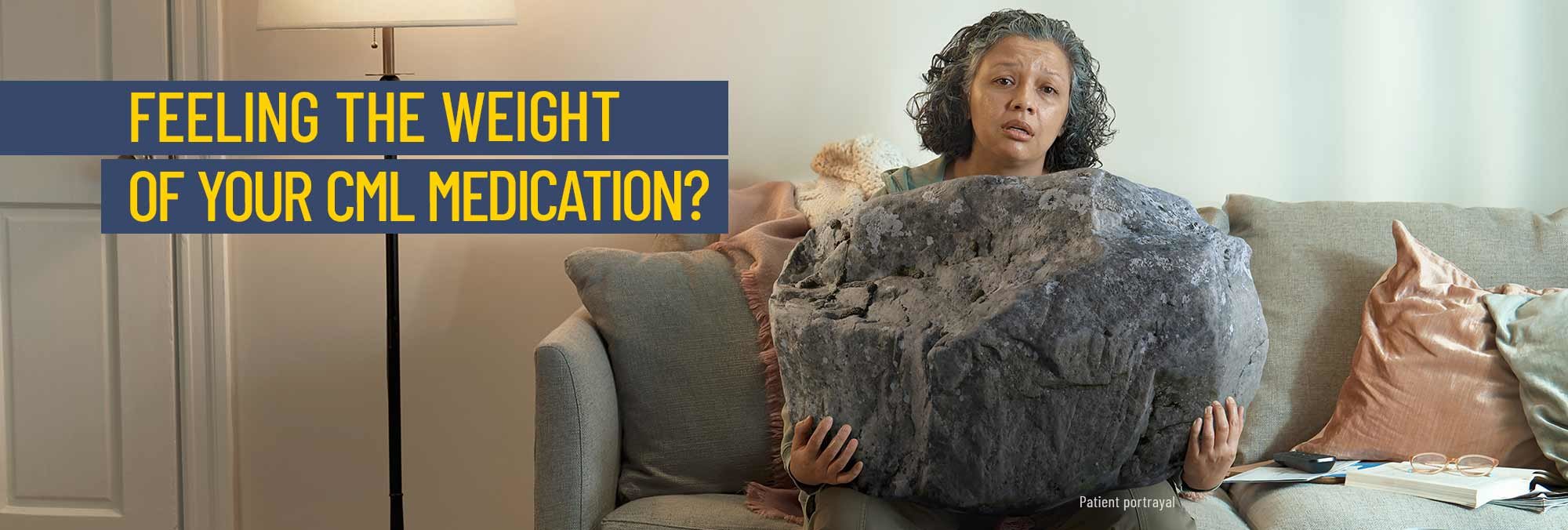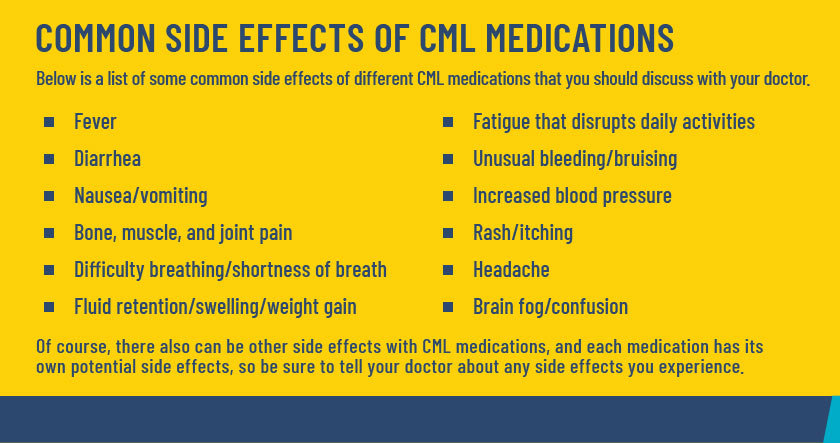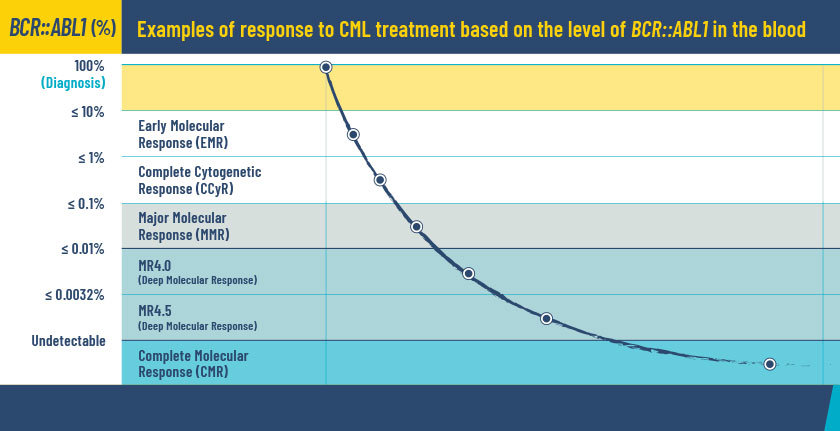
Is your current CML medication no longer working? Have side effects from your medication led you to accept a “new normal” that is causing you to miss out on activities? Don’t keep it to yourself. Your doctor needs to know.
Give examples of how side effects are weighing on you
Providing your doctor with examples of how side effects may be interfering with some of your daily activities or your emotional health can help you start the conversation.
Do side effects make you think twice about taking your medication?
If side effects are becoming so bothersome that you’re not able to take your CML medication as prescribed, tell your doctor. Missing doses can make your medication less effective.
Why fight 2 battles?
Talk to your doctor about your treatment options so you can focus on fighting CML, not only the side effects from your medication.
Being a “good patient” doesn’t have to mean putting up with side effects
Some people with CML feel they don’t want to bother their doctor by bringing up side effects. But in order for your doctor to provide you with the best treatment, your doctor needs to know how you are truly feeling.
CML requires teamwork. Your doctor knows medicine, but only you know how you feel when you take your CML medication. This Doctor Discussion Guide can help you start the conversation.
See a CML specialist—even if only once
Many doctors only treat a few patients with CML. While your local doctor is someone you need to rely on, you may find it helpful to see a CML specialist. A specialist can work together with your local doctor to help guide your treatment.
Drug resistance can also weigh on you
One of the goals of treating CML is to see the number of leukemic cells in your blood decrease. For some people, this may not happen. If your numbers are going up, you may be experiencing drug resistance. There are 2 types of resistance in CML:
Treatment doesn’t work: The body does not respond to treatment. This is known as primary drug resistance
Treatment works at first, but stops: The medication worked for a time, but it no longer works as well. This is known as secondary drug resistance
If the results of your blood tests show that the number of leukemic cells are rising, your doctor may decide to adjust your dose or consider another medication.
CML can affect your mental health
Not feeling like yourself? Many people living with CML report suffering from moderate or severe depression. Be sure to discuss any mental health issues you may be having with your doctor.
Measuring your response to CML treatment
The chart below shows an example of how your blood counts may decrease with medication. If your BCR::ABL1 increases, or you do not achieve your CML treatment goals, you may want to ask your doctor about other treatment options.
Treatment goals vary by patient. Not every patient will reach these CML milestones.
Learn more about the terms listed in the chart.
Monitoring your blood
Your doctor may want you to go for blood tests every 3 months to see if you are responding to your medication
Tests your doctor may order include:
Complete Blood Count (CBC): Measures the amount of red blood cells, white blood cells, and platelets in the blood
Cytogenetic Test: Analyzes a small sample of bone marrow under a microscope to determine the number of cells with the Philadelphia chromosome
Fluorescence In Situ Hybridization (FISH) Test: A standard cytogenetic test may not detect all the CML cells in the blood. Your doctor may order a FISH test, which uses fluorescent dyes and a fluorescent microscope to measure the number of cells with the Philadelphia chromosome
Quantitative Polymerase Chain Reaction (qPCR or molecular) Test: qPCR testing is sensitive enough to detect the smallest amount of leukemic cells in the blood
Gene Mutation Testing: Looks for mutations in the BCR::ABL1 gene that may cause certain medications to stop working. Your doctor may call this a BCR::ABL1 kinase domain mutation analysis
An increase in your BCR::ABL1 levels can be a red flag for your doctor. That’s why it’s important to go for any blood tests your doctor prescribes and discuss what your results mean. The Doctor Discussion Guide can help you have a conversation about your results.



